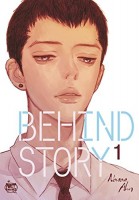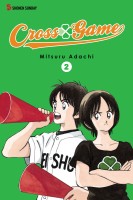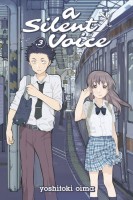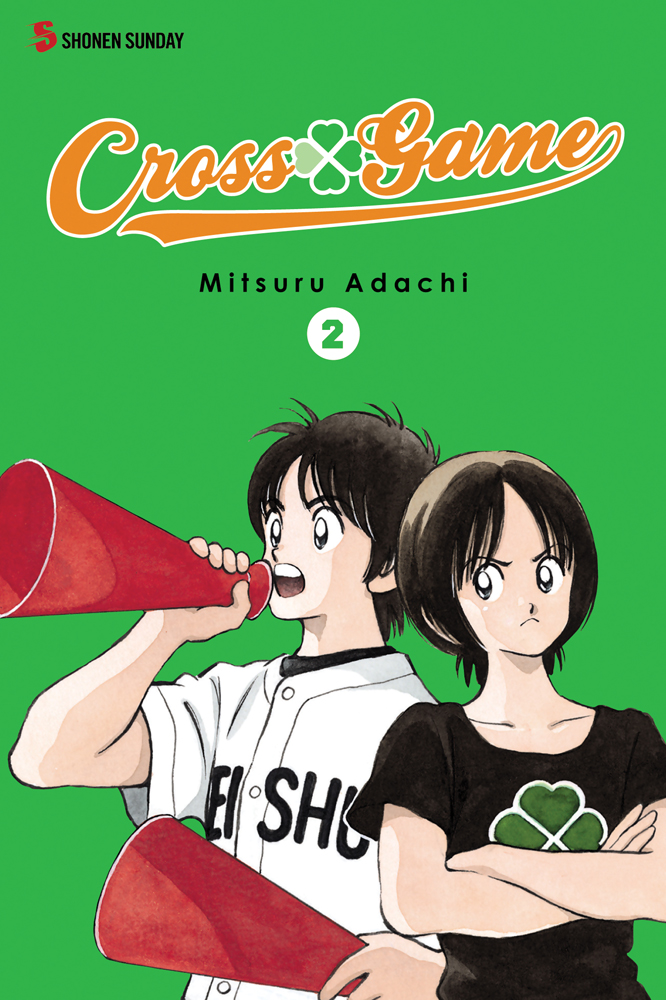My News and Reviews
Last week was Thanksgiving in the United States, which means that I was fairly busy traveling and visiting family. I still posted a couple of things at Experiments in Manga, though. Because it’s the end of the month, it’s also time for a manga giveaway. And, because it’s November, the giveaway is for multiple volumes. The winner will be announced on Wednesday, so there’s still time to enter for a chance to win four first volumes of manga in the Kodansha Shoujo Smorgasbord giveaway. I also posted a review last week of Attack on Titan: Kuklo Unbound, which is an omnibus edition of the last two volumes in Ryo Suzukaze’s trilogy of novels which form a prequel to Hajime Isayama’s Attack on Titan manga series. It’s a pretty quick read, and provides an interesting perspective and backstory that fans of the franchise will appreciate.
Because I was traveling and visiting family, I didn’t spend much time online last week, but there were a few things that managed to catch my attention. Comics Forum’s Manga Studies column continued with “What are you reading? Approaches and reasons for looking at language in manga” by Giancarla Unser Schutz. Gengoroh Tagame’s Otouto No Otto (My Brother’s Husband) won a Japan Media Arts Award, which is kind of a big deal. Viz Media posted its Fall 2015 survey about anime and manga buying habits and convention attendance. And, in much sadder news, mangaka and yokai enthusiast Shigeru Mizuki has passed away.
Quick Takes
 Behind Story, Volume 1 by Narae Ahn. I’ve been trying to make a point to sample some of Netcomics’ recent releases which is what first brought Ahn’s boys’ love manhwa Behind Story to my attention. I wasn’t previously aware of the series, and I actually haven’t been able to find much information about Ahn, either. The the story didn’t initially engage me, likely because of the school setting which didn’t do much to distinguish itself, but by the end of the first volume I was left wanting more. Johann is a transfer student who is rumored to be gay, which means that most of his classmates avoid him, but recently Taehee has developed an interest in him. One of their teachers has, too, and Johann finds himself the target of an unhealthy and abusive obsession. Behind Story has tumultuous emotions and drama, with the potential to go in some very dark and dangerous directions. While the cover art of Behind Story is particularly striking, the interior artwork is attractive, too, although some of the transitions between scenes and flashbacks were occasionally difficult to follow.
Behind Story, Volume 1 by Narae Ahn. I’ve been trying to make a point to sample some of Netcomics’ recent releases which is what first brought Ahn’s boys’ love manhwa Behind Story to my attention. I wasn’t previously aware of the series, and I actually haven’t been able to find much information about Ahn, either. The the story didn’t initially engage me, likely because of the school setting which didn’t do much to distinguish itself, but by the end of the first volume I was left wanting more. Johann is a transfer student who is rumored to be gay, which means that most of his classmates avoid him, but recently Taehee has developed an interest in him. One of their teachers has, too, and Johann finds himself the target of an unhealthy and abusive obsession. Behind Story has tumultuous emotions and drama, with the potential to go in some very dark and dangerous directions. While the cover art of Behind Story is particularly striking, the interior artwork is attractive, too, although some of the transitions between scenes and flashbacks were occasionally difficult to follow.
 Cross Game, Omnibuses 2-5 (equivalent to Volumes 4-11) by Mitsuru Adachi. It’s been a long while since I read the first Cross Game manga omnibus or watched the anime series; I’d forgotten just how good the story is. I’m not even especially interested in baseball, and yet I find myself completely absorbed by Cross Game. Probably because the manga really is about more than just baseball, although the way that Adachi paces the games does makes them very exciting. And after reading the manga, I am able to better appreciate and understand the strategy involved in the sport. But for me, the baseball in Cross Game takes a backseat to the series’ exploration of love and loss. In more than one way, the characters are dealing with the utter unfairness of life. Sometimes they are able to triumph over adversity and it’s magnificent, but sometimes there is nothing to be done but to live and learn and try to move on as best as they can. Cross Game is a series that manages to be very emotionally resonant; I find that I’ve come to care about the characters and their well-being a great deal.
Cross Game, Omnibuses 2-5 (equivalent to Volumes 4-11) by Mitsuru Adachi. It’s been a long while since I read the first Cross Game manga omnibus or watched the anime series; I’d forgotten just how good the story is. I’m not even especially interested in baseball, and yet I find myself completely absorbed by Cross Game. Probably because the manga really is about more than just baseball, although the way that Adachi paces the games does makes them very exciting. And after reading the manga, I am able to better appreciate and understand the strategy involved in the sport. But for me, the baseball in Cross Game takes a backseat to the series’ exploration of love and loss. In more than one way, the characters are dealing with the utter unfairness of life. Sometimes they are able to triumph over adversity and it’s magnificent, but sometimes there is nothing to be done but to live and learn and try to move on as best as they can. Cross Game is a series that manages to be very emotionally resonant; I find that I’ve come to care about the characters and their well-being a great deal.
 A Silent Voice, Volume 3 by Yoshitoki Oima. I continue to be impressed with A Silent Voice and Oima’s willingness to include characters who are simply awful people. It does make the series a little difficult or unpleasant to read at times, but the manga is still very well done. Fortunately, the series isn’t completely depressing. There’s hope for redemption and the promise that, while the mistakes of the past can’t be undone, people can indeed change for the better. It’s a lesson that Shoya is still learning as he is constantly reminded of and trying to make up for how horrible he once was. Though he has apologized and sincerely regrets the actions of his sixth-grade self, he’s uncertain whether or not he actually deserves to be forgiven and what his motivations in seeking forgiveness truly are. Shoya is still a little oblivious and self-centered when it comes to his relationships with other people, and he still makes plenty of mistakes, but he is slowly beginning to grow and mature and form honest friendships. His heart at least is in the right place, and he has become a much more sympathetic character over the last few volumes.
A Silent Voice, Volume 3 by Yoshitoki Oima. I continue to be impressed with A Silent Voice and Oima’s willingness to include characters who are simply awful people. It does make the series a little difficult or unpleasant to read at times, but the manga is still very well done. Fortunately, the series isn’t completely depressing. There’s hope for redemption and the promise that, while the mistakes of the past can’t be undone, people can indeed change for the better. It’s a lesson that Shoya is still learning as he is constantly reminded of and trying to make up for how horrible he once was. Though he has apologized and sincerely regrets the actions of his sixth-grade self, he’s uncertain whether or not he actually deserves to be forgiven and what his motivations in seeking forgiveness truly are. Shoya is still a little oblivious and self-centered when it comes to his relationships with other people, and he still makes plenty of mistakes, but he is slowly beginning to grow and mature and form honest friendships. His heart at least is in the right place, and he has become a much more sympathetic character over the last few volumes.

[…] Haven’t you heard? It’s the latest edition of Bookshelf Briefs! Ash Brown discusses a week of manga reading at Experiments in […]